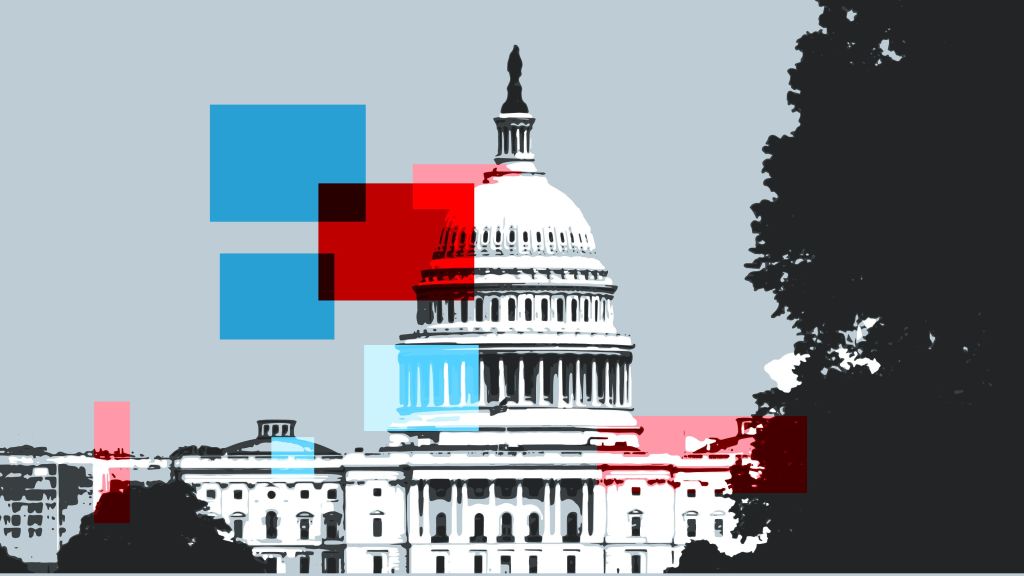It looks like we’re in for another big tech CEO hearing.
The Senate Commerce Committee voted Thursday to move forward with subpoenas for Twitter’s Jack Dorsey, Facebook’s Mark Zuckerberg and Sundar Pichai, the CEO of Alphabet. The unusual decision to subpoena the social media chief executives adds yet another politically volatile event to the schedule in the run-up to the most contentious election in modern U.S. history.
The hearing will focus on Section 230 of the Communications Decency Act, the key law that shields online platforms from legal liability for the content their users create.
While the topic might sound dry for the unacquainted, the law is an explosive topic, both politically and in the eyes of the tech industry, which could be left reeling from even what might seem like minor changes to the legal shield.
Committee Chairman Roger Wicker called the decision to hold the hearing “imperative” in order for Americans to “receive a full accounting from the heads of these companies about their content moderation practices.”
Remarkably, the decision to subpoena the CEOs was unanimous, with ranking Democrat Maria Cantwell joining the vote to subpoena the companies after initially opposing the decision.
Cantwell previously called the idea of issuing subpoenas an “extraordinary” step intended to “chill the efforts” of companies to remove misinformation and harassment from their platforms.
Republican members of the Senate Commerce Committee include Wicker, Ted Cruz, John Thune and Rick Scott. Democrats on the committee include Cantwell, Amy Klobuchar, Brian Schatz and Kyrsten Sinema.
What’s going on with Section 230?
Section 230 is generally regarded as the legal infrastructure that made the social internet possible, from Facebook accounts and comments sections to Yelp and Amazon reviews. It’s a short law, but in 2020 an increasingly controversial one, as lawmakers scramble for levers to limit — or at least threaten to limit — the power of big tech companies.
Republicans see dismantling Section 230’s legal protections as a way to punish social media companies for perceived anti-conservative bias — a common refrain on the right that is regularly undermined by the ubiquity of right-leaning content on platforms like Facebook.
Importantly, President Trump and Attorney General William Barr have taken particular interest in attacking Section 230. Earlier this year, Trump lashed out at Twitter for moderating his false claims with an executive order threatening the law. While the order was largely toothless, Trump’s focus on Section 230 set the agenda for the Barr’s Department of Justice and for Republicans in Congress eager to follow his lead. The order also roped the FCC into getting involved.
Trump signs an executive order taking direct aim at social media companies
In June, the Justice Department laid out the groundwork for “a set of concrete reform proposals” that would undermine the law, couching the proposal as an effort to rid platforms of “illicit content” like child abuse. Last month, Barr sent draft legislation to Congress incorporating those proposals.
Democrats have more recently warmed up to the idea of going after Section 230, but for different reasons. While the right mostly complains about political censorship, Democratic lawmakers see changing Section 230 as a way to hold platforms accountable for rampant misinformation and other forms of toxic content that continue to thrive on social platforms.
Legislation taking aim at Section 230
Lindsey Graham’s bill, the EARN IT Act, is probably the best known legislation targeting Section 230 so far. A toned-down version of that bill advanced out of its committee but hasn’t yet faced the full Senate.
In June, Senators John Thune and Brian Schatz, both members of the committee issuing subpoenas, introduced a bipartisan Section 230 bill known as the PACT Act that focused mostly on moderation transparency.
To make matters even more confusing, another Graham-sponsored bill focused on Section 230 emerged earlier this month hours after Trump called on his party to “repeal Section 230 immediately.” That proposal did not have bipartisan sponsorship.
Whatever happens with the next big tech hearing and with all of these Section 230 bills, it’s clear that there’s a bipartisan appetite for doing something to change tech’s critical legal shield, even if the what isn’t yet clear.
What is clear: Tinkering with such a foundational law could have a huge cascade of effects for the internet as we know it and isn’t something to be undertaken lightly — if at all.
Going to war with Twitter, Trump threatens critical social media legal protections
































Comment